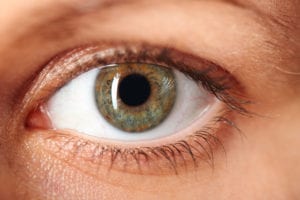How to prevent diabetic retinopathy
- Posted on: Jan 15 2021

Diabetic retinopathy is a complication of diabetes caused by damage to the blood vessels in the tissue at the back of the eye. While this condition can’t be cured, treatment can help. And while you can’t always prevent diabetic retinopathy from developing, early diagnosis and treatment will help prevent severe vision loss. Here are some ways to reduce your risk of developing diabetic retinopathy:
- When you have diabetes, it’s important to eat a healthy diet and get at least 150 minutes of moderate aerobic activity each week. Control your blood pressure and cholesterol by following a healthy diet and losing weight if you are overweight.
- Also, be sure to take your oral diabetes medications as directed by your physician. Monitor your blood sugar level daily and several times daily, as needed.
- Talk to your doctor about a glycosylated hemoglobin test, also called the hemoglobin A1C test. This test shows your average blood sugar level for the two- to three-month period before the test was conducted. Your A1C goal is to stay under 7 percent.
- If you smoke, talk to your doctor about cessation plans and programs. Smoking increases your risk of diabetes complications, including diabetic retinopathy.
- It’s important to watch for vision changes. If you experience sudden vision changes or your vision becomes blurry, spotty, or hazy, call your eye doctor immediately.
More than 40 percent of patients who have diabetes will develop some form of eye disease as a result of their condition. Scheduling regular eye exams and controlling blood sugar levels is key to successful prevention or reduction of symptoms.
To learn more about diabetic retinopathy and treatment options, contact our Everett office at (425) 259-2020.
Posted in: Diabetic Eye Disease
